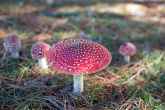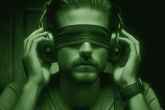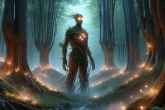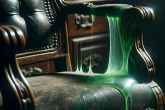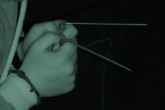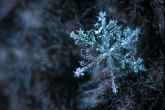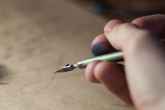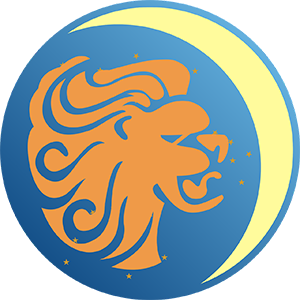Parapsychology: Is It All Nonsense Or Has The World Benefited From The Study Of The Weird?
June 16, 2022 1:00 AM ‐ Paranormal • Science
This article is more than two years old.
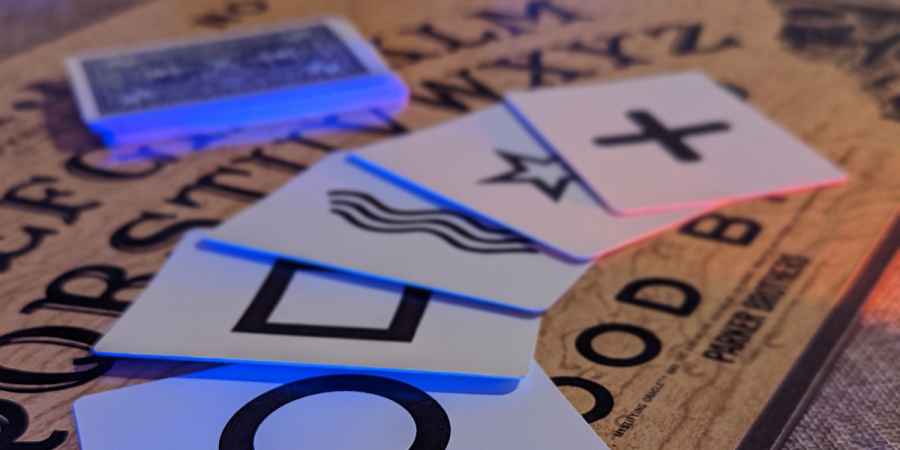
When I tell people I am interested in parapsychology, I usually get one of two reactions. They either find it fascinating and have hundreds of questions about ESP, poltergeists and psychics, or they think it's all a load of nonsense and ask why I am wasting my time reading about it.
It got me wondering, has the world benefited from the study of parapsychology or have the many academics studying this branch psychology been wasting their time?
After one friend asked "what's the point in researching something that's made up?" I decided to ask parapsychologist Ciarán O'Keeffe what, if anything, the field has given back to the world.
Ciarán works out of Buckinghamshire New University. He lectures on the subject of psychology and parapsychology, and actively researches the field. So, of course Ciarán sees the value in researching this topic.
Ciarán told me that he thinks that parapsychology is almost duty bound to investigate some of the paranormal experiences that people report. He said, "I think there has been a perception of some of these paranormal experiences and beliefs, that either mainstream science or some of the media regarded it as a joke in the past, and by attaching parapsychology to it, it's given a little bit of credibility to it."
These experiences can be very real, sometimes even traumatic or life changing, so by treating these cases with respect, it gives those having the experience a much-needed opportunity to talk to someone sympathetic about what has happened to them.
As well as offering this personal help and understanding, parapsychology's biggest impact has arguably been on how scientific experiments are carried out, especially those of a psychological nature. Ciarán explains, "there are some key things that parapsychology did in its development, which were first. So, for example, the blind and double blind protocol, which is ensuring that the experimenter is not in contact with the participants."
In a double-blind study neither the experimenters nor the participants know the conditions of each particular test. For example if you wanted to test a volunteer's ability to perform remote viewing by identify what is in a sealed box through psi abilities, then you should ensure that it's not only the volunteer who doesn't know what's in the box, but also you yourself as the researcher. By doing this you reduce the possibility that you are influencing the volunteer or showing a bias in the way you are recording the results.
The blind protocol is something that parapsychology did first in its evaluation of the original claims of Anton Mesmer - mesmerism being the forerunner to hypnosis. It has, however, become particularly important in many aspects of research, perhaps more than anywhere in the development and testing of new drugs and treatments in the medical world. In clinical trials, neither the participants nor the experimenters know who is receiving a particular treatment. Not only does this prevent bias in result, but it also helps to minimise the impact of the placebo effect. This is the weird behaviour where a person can report an improvement of symptoms as a result of a substance or treatment that has no therapeutic value.
Another important process which was established in parapsychology is the practice of pre-registering a study. Ciarán explains, "the pre-study database, effectively, is a way of controlling for the 'file drawer effect'." He adds, "there was concern in early parapsychology, that if the results were not positive, they would just be literally put in the file drawer."
This pre-study database means that researchers don't end up filing papers away rather than publishing them when the study doesn't yield the results they'd hoped for. When a researcher is at the point where they're ready to conduct the study, they submit details about the study and how they intend to conduct it.
Ciarán says, "you submit the method that you're going to do, and also your hypotheses." The idea is that you follow this up with your findings after the study is completed. Should a researcher not publish the findings of the study, then others in the field can look into why that was. This is so important in the study of parapsychology where researcher of the past have taken it upon themselves to try to prove the existence of fringe beliefs, like telepathy.
Ciarán says that putting certain studies in the file drawer distorts the overall picture, "you only got a sense that 'oh, yeah, there's lots of positive results here'. Well, no, that's only the case because only the positive ones were reported." The parapsychologist adds, "the pre-registering of studies was something parapsychology did some time ago, to try and counter the criticism it was getting from mainstream science. And now, of course, it is a feature of mainstream science."
Another research related problem that parapsychology actively tackled is that of replication bias. According to Ciarán the controversy caused a bit of public debate. He said, "we call it the replication controversy, or replication crisis." Ciarán told us, "about ten years ago, there was a controversy in psychology about a journal, not publishing studies that replicated an earlier study." As Ciarán points out, this really is the basic premise of science, "if somebody does a study, the whole point is that other people then try and replicate it where they're based. If they're not showing the same results that should be published."
This became hotly debated in the parapsychology field after researchers attempted to replicate the work a Cornell University professor claimed to have found proof of presentiment, an intuitive feeling about the future. An article in the Journal of Personality and Social Psychology described Dr. Daryl Bem's nine different experiments and shared his conclusion that his participants were able to gain unconscious influences from future events.
Bem's tests have since been replicated and produced conflicting results. When these researcher tried to get their findings published in the same journal that published details of the original study, they found they couldn't get published as the journal wasn't interested in public replication.
Feeling The Future
The most famous of Bem's original experiments was dubbed the "feeling the future" experiment, in which he gave his volunteer test subjects a list of words to memorise. They were only given a short amount of time to learn the list before being given a test to see how many of the words they could recall.
The results were not revealed to the test subjects and at some point after the test some of the words were randomly selected and the students were asked to retype these words multiple times for practice.
When the results of the test were analysed, it showed that the students were better able to recall the words chosen for the practice session, even though these words were randomly selected after the test.
This seems to imply that studying the words in the future helped the those being tested in the past, however the professor's experiments seemed to show biased in favour of supporting ESP, as well as serious methodological flaws, such as changing the procedures partway through the experiments and combining results of tests with different chances of significance.
One team of researchers, headed up by skeptics Professor Chris French and Professor Richard Wiseman, conducted Bem's experiment in exactly the same way, they found absolutely no evidence of participants being able to predict the future or being influenced in any way by future events.
In 2016, Bem told his peers at a meeting of the Parapsychological Association, that he had carried out a replication of his experiments, using more rigorous methods than in his original research. This time round the experiments yielded no evidence at all for the existence of ESP or the feeling the future effect.
So, while the wider world might not have directly benefited through innovation, inventions or findings made by parapsychologists, it's clear that parapsychology has had its biggest impact on the scientific method, this has lead to advancements through other branches of science.
But of course, parapsychology has also helped advance the field of paranormal research and helped those who have been troubled by hauntings or anomalous experiences.
Ciarán says that people without an understanding of parapsychology can often be immediately dismissive of people's experiences as being fraud or hallucination, but Ciarán says "you cannot ignore the thousands-upon-thousands of people that have these experiences, and if anything, there is a responsibility on science, especially a branch of psychology to try and understand more about these experiences because effectively parapsychology is about understanding people's behaviour, understanding the mind."
He adds, "we have a scientific responsibility to understand more about these experiences. I think the only caveat to that is, is that message out there? So if somebody has a paranormal experience, I don't think their natural reaction would be 'I'm gonna call a parapsychologist'."
When it comes to ghosts and haunting, Ciarán addresses a clear divide. He said, "Steve Parsons has always been saying, which I think is a brilliant way to look at it, there is a gap between ghost hunting and parapsychology and that gap needs to be filled. It's a gap where we can learn from each other."
Ciarán explains that this is down to the history of parapsychology being primarily lab based. He said, "it's only really within the last five to 10 years that parapsychologists have really started talking to ghost hunters."
He added, "I think because within the field, parapsychology looked at ghost hunting as a non scientific endeavour." The parapsychologist does agree to a point that a lot of the "running around in the dark" isn't scientific, but observing the people doing this is science. Ciarán explains, "data gathering is science and data doesn't have to be hard numbers, it can be recording people's experiences. So, there should be more talking because effectively what ghost hunters are doing, or people that have experiences are doing, is observing in the real world."
However, it needs to work both ways, "ghost hunters can learn from parapsychologists about stuff like sleep paralysis, temporal lobe lability, all of the research and findings that we're doing in parapsychology, a prime example is the paper that I published about environmental explanations."
The paper looked at how factors like visual cues in the physical environment, lighting levels, air quality, temperature, infrasound, and electromagnetic fields could cause someone to have the type of anomalous experience that they might categorise as a ghost, demon or poltergeist. Their study concluded that there is insufficient evidence to suggest that these factors may provide an explanation for a location's haunted persona, perceived creepiness, or experiences that arise from these settings.
Ciarán said, "we made a point of publishing it in a journal where there was no cost involved. People could just get free access to it, but effectively, it reviews all of the studies on environmental explanations for haunting experiences and basically concludes you know, what, the evidence is not there."
The paper made the recommendation that "future studies must [therefore] strive to measure discrete physical factors more consistently, comprehensively, and precisely." Ciarán said, "I think even that simple message, showing that to ghost hunters has been really useful, because you can see the research. Actually, we met some of very, very few guys that are measuring the environment.
Ciarán, summed up, "I guess the issue is for me, is that I'm sold on the idea that the world in some way has benefited from parapsychology, but I am biased because I feel it has, because I'm a parapsychologist."
Related Content
Daily Horoscopes
You May Also Like



